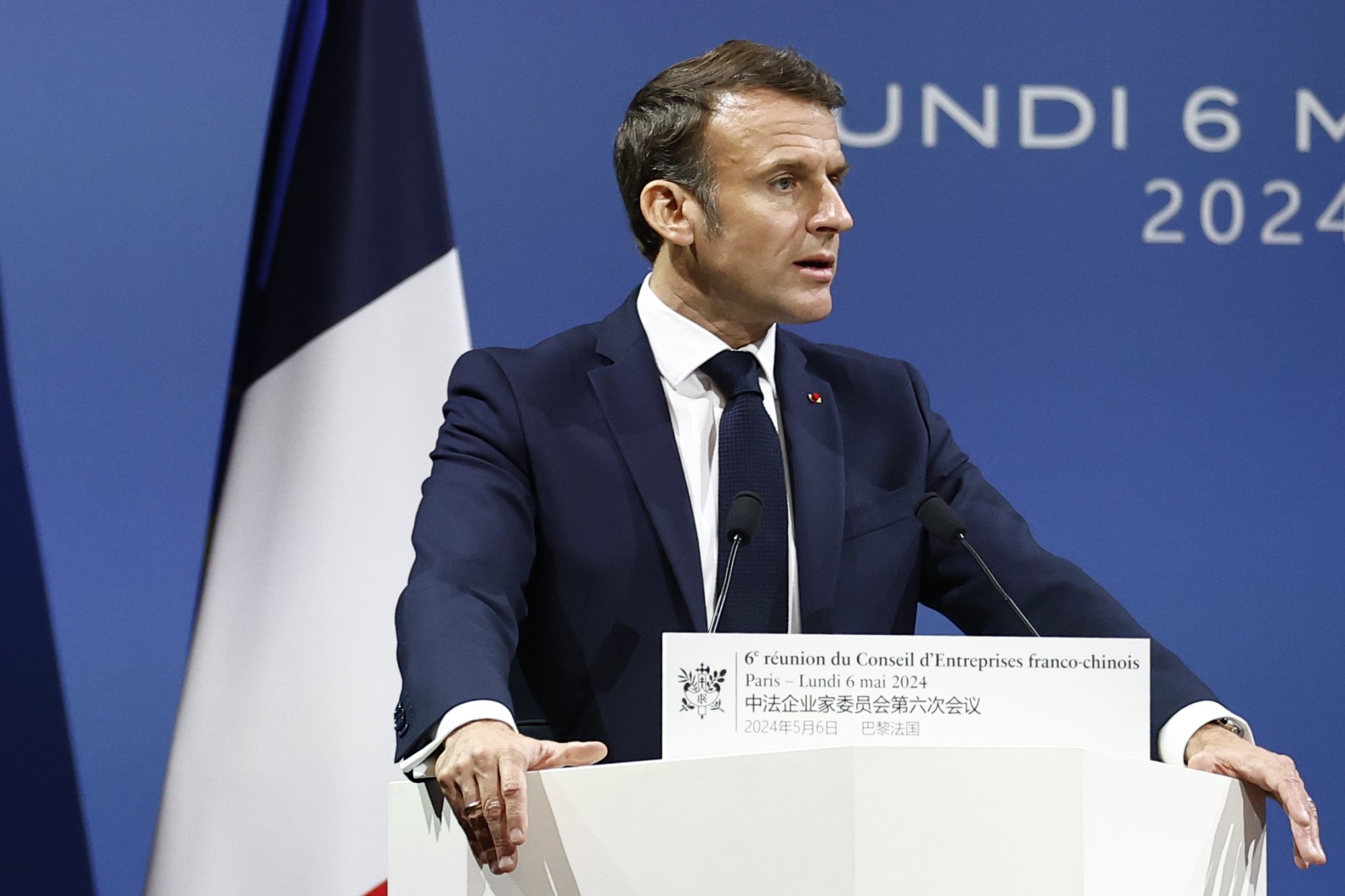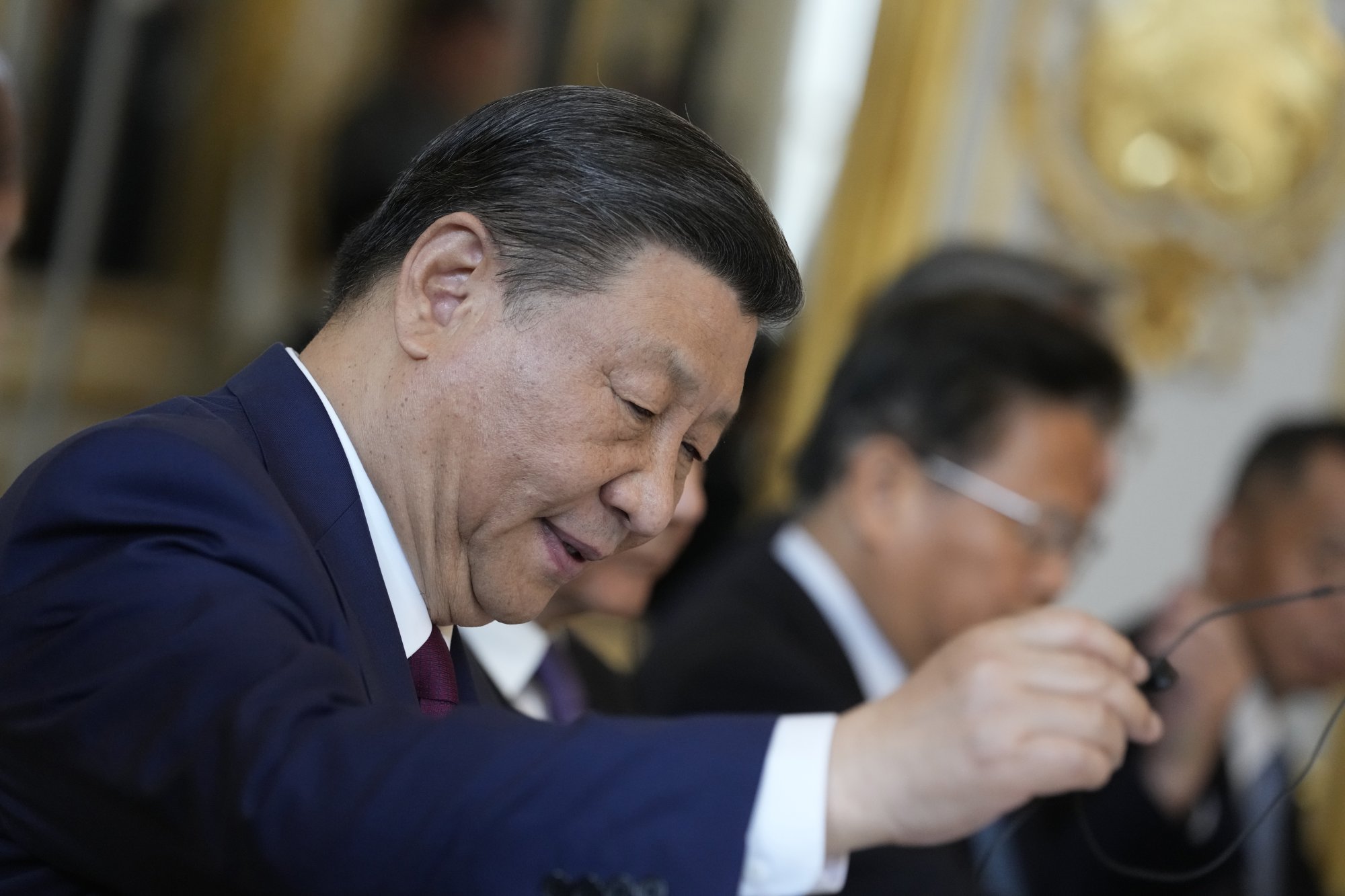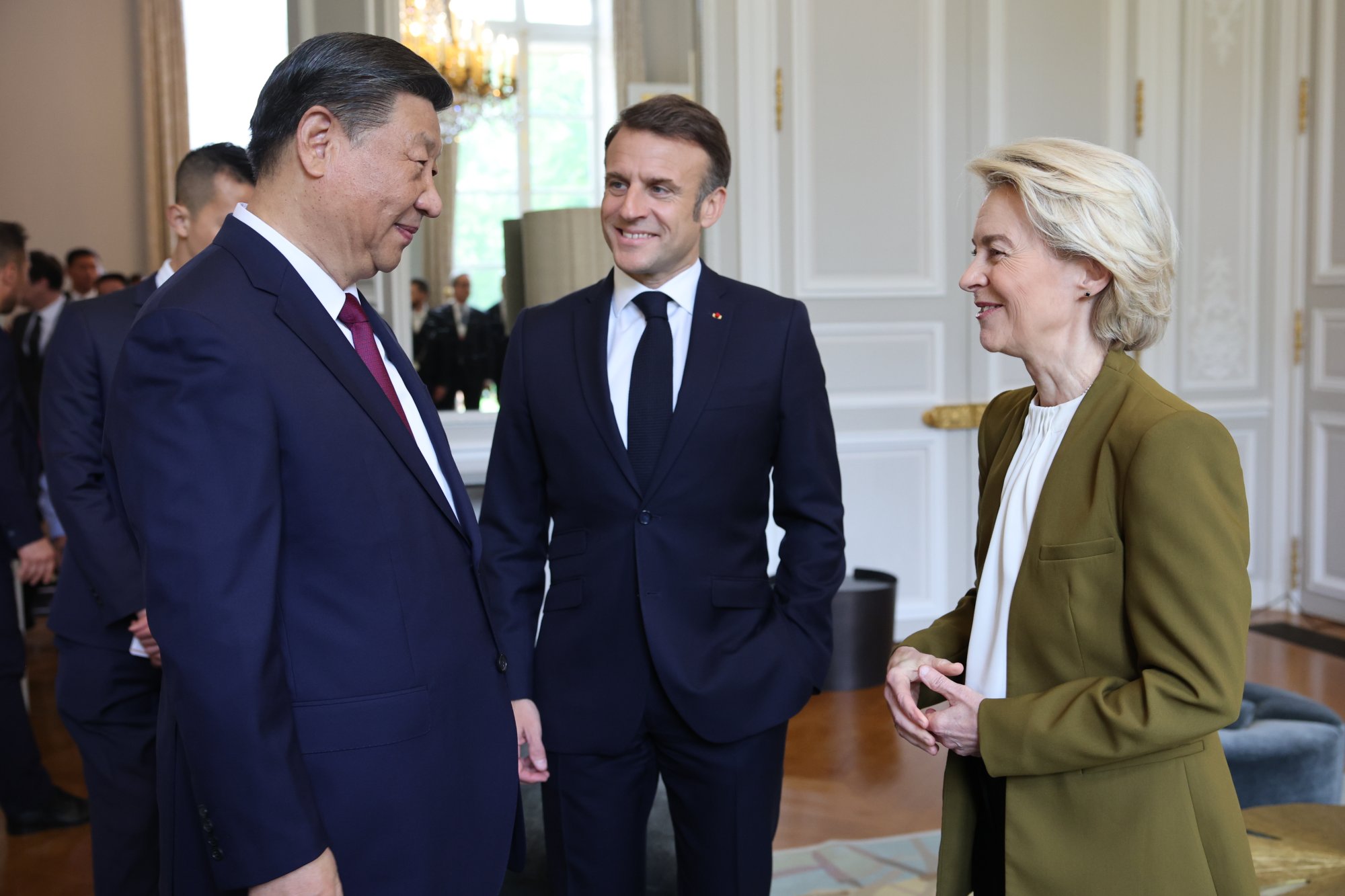French President Emmanuel Macron welcomed China’s “commitment” not to sell arms to Russia and to control the flow of dual-use goods to the Russian military, on the first day of Chinese leader Xi Jinping’s six-day tour of Europe.
“We welcome the commitments of the Chinese authorities to abstain from selling any arms to Moscow and control strictly the exports of dual-use goods,” Macron said amid a flurry of meetings in Paris, Agence France-Presse reported.

Such a commitment would represent a breakthrough for Europe, which has long lobbied Xi to use his influence with Russian President Vladimir Putin to help end the war in Ukraine.
Do you have questions about the biggest topics and trends from around the world? Get the answers with SCMP Knowledge, our new platform of curated content with explainers, FAQs, analyses and infographics brought to you by our award-winning team.
Xi is in France for his first European tour for five years. The two-day visit will be followed by stop-offs in Serbia and Hungary.
In Paris, Ukraine has featured prominently on the agenda. European officials believe dual-use goods, such as microchips and satellite imaging equipment, are helping to power Moscow’s war machine.
Macron also thanked Xi for backing his idea for an “Olympic truce” – which would see all global conflicts pause during the Paris Olympics in July and August.
Xi, in comments quoted by Xinhua, warned against “smearing” China over Ukraine.
“We oppose using the Ukraine crisis to cast blame, smear a third country and incite a new Cold War,” Xi said, as both leaders gave statements.
Xi said China was “not watching the fire from the sidelines, we have always been playing a positive role in achieving peace”.

Earlier in the day, European Commission President Ursula von der Leyen, who took part in a trilateral meeting with the two national leaders, said that “more effort is needed to curtail delivery of dual-use goods to Russia that find their way to the battlefield”.
On trade issues, Macron also appeared to gain some ground with Xi. In a nod to a developing dispute, he gave Xi two bottles of cognac, one Louis XIII by Remy Martin and one Hennessy X.O, and thanked him for his “open attitude” towards Beijing’s trade probe into the premium liquor’s exports to China.
Beijing’s anti-dumping investigation is seen to be in response to a European Union inquiry into subsidies in China’s electric vehicle sector, a probe Macron strongly supports.
“I thank the president for his open attitude regarding provisional measures on cognac,” Macron said, as the leaders made statements in front of the press, during the first day of Xi’s first European state visit in five years.
Macron also gave Xi a copy of the first French-Chinese dictionary and rare Victor Hugo volumes. He received in return a stuffed bird, a painting and some French-language books that were published in China.
The exchanges happened at a tense moment for EU-China trade relations, with some speculating that the powers were teetering on the brink of a trade war.
European leaders have railed against what they describe as “overcapacity” in China’s manufacturing sector. They believe there is not enough demand in China to absorb the volume of hi-tech goods being made there, and that these goods will be exported to the bloc en masse at discount prices, endangering local producers.
Von der Leyen warned that “Europe will not waver from making tough decisions needed to protect its economy and its security”, adding that Brussels was willing to use the trade weapons at its disposal to counter Beijing’s policies.
During Monday’s trilateral meeting, Xi rejected these claims, saying “there is no such thing as China’s overcapacity problem”.
As the leaders were raising glasses of Champagne at the start of a state banquet, the Elysee began releasing details of intergovernmental agreements sealed over the course of the day.

A 10-point statement was released on the Middle East, just after news broke that Hamas officials had approved a ceasefire deal for Gaza put forward by Qatari and Egyptian mediators. In the statement, Macron and Xi “expressed their opposition to an Israeli offensive on Rafah, which would lead to a humanitarian catastrophe on a new scale”.
An agreement on artificial intelligence “emphasised the importance of strengthening international cooperation in a context of rapid technological development to guarantee international security and stability, sovereignty and respect for fundamental rights”.
On the sidelines of a business conference tied to Xi’s visit, Chinese and French enterprises also announced a series of deals.
These included an agreement between France’s Orano and China’s Xiamen Tungsten New Energy to forge a “global strategic partnership” in the battery industry, and a memorandum of understanding between French company Fives and Chinese firm Envision to cooperate in battery cell assembly in France.
A long list of Chinese companies were invited to this part of the summit, including some that have been in the cross hairs of European regulators. Among them were telecoms giants Huawei Technologies and ZTE, and rail equipment provider CRRC.
One notable absentee was BYD, the Chinese electric vehicle manufacturer. Earlier in the day, French Finance Minister Bruno Le Maire said the country was open to Chinese investment in its electric vehicle sector, including from BYD.
“France welcomes all industrial projects. BYD and the Chinese auto industry are very welcome in France,” Le Maire told a gathering of automotive executives.
On trade, China agreed to open its market to French exports of pork offal and processed pork proteins, while the sides agreed to “intensify their exchanges” on opening the Chinese cosmetics markets to French companies, in a nod to a long-standing European economic gripe.
Further declarations were signed on biodiversity and agriculture, while a flurry of cultural exchanges were agreed to. In one such deal, China Media Group, the state-owned parent company of broadcaster CGTN, has “become a major partner” of the Sunny Side of the Doc, an annual documentary film festival in the French town of La Rochelle.
More from South China Morning Post:
- As Xi pushes for closer ties with Europe, EU pressures China on Russia and trade
- Chinese President Xi Jinping arrives in Paris with EU trade, Ukraine among hot button issues on table
- As Xi Jinping heads to France, China seeks chance to sway one of EU’s most powerful members
- With Europe tour and Putin visit on Xi’s calendar, China faces scrutiny over Ukraine war stance
- EU turns up the heat on China as Xi Jinping readies for 3-nation tour, with fiery Paris talks on the cards
For the latest news from the South China Morning Post download our mobile app. Copyright 2024.





